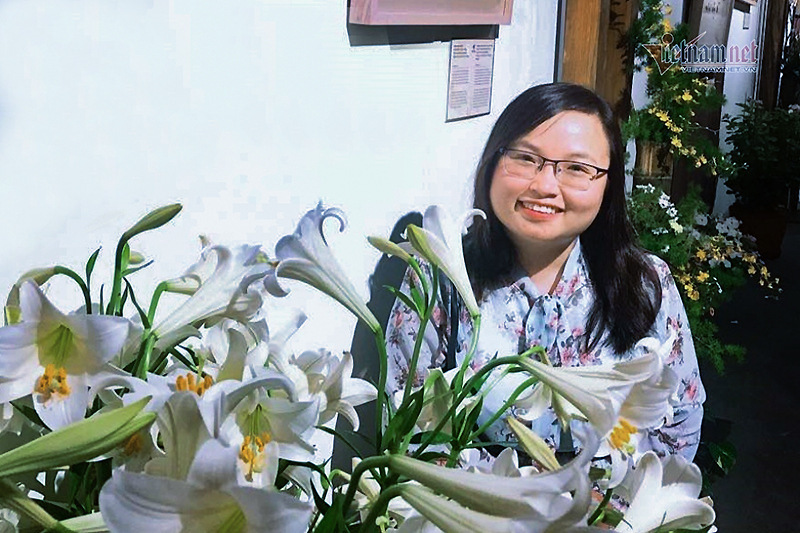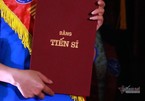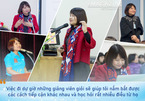
Nguyen Thi Ngoc Hanh
As a child, Nguyen Thi Ngoc Hanh, dreamed of creating a cancer drug with low production costs made of Vietnam’s medicinal herbs.
In 2007, Hanh registered to study biotechnology at the HCM City University of Technology. After graduation, she continued studying for a master’s degree at the International University in 2012.
During and after the study for master’s degree, Hanh’s research focused on developing drugs to treat cancer from herbs. Her master’s thesis on isolation of exopolysaccharide with biological activity from slime mold in 2015 was cited by the scientific council as having high practicality.
She decided, however, to postpone a doctoral program because she could not receive funding for her project on drug development.
“During that time, I had three big concerns – researching anti-cancer active elements; improving the awareness of the community of cancer patients about living well and happily with the disease; and carrying out activities to support the community of cancer patients."
According to Hanh, many cancer patients have no access to the right knowledge and treatment methods. And many people abuse traditional herbal medicine, functional food and non-official therapies. This makes them miss the golden time for cancer treatment.
When they go back to the hospital for treatment, their conditions are too serious, or if they still can be treated, the treatment is very expensive.
Hanh said heightening awareness in the community, together with treatment, is needed. If cancer patients have better knowledge about treatment, they can overcome or deal with side effects and successfully follow the treatment process.
The research in Vietnam can only isolate the compounds that kill cancer cells, but in-depth research is needed on virulence and disease models, as well as clinical trials, to produce authentic pharmaceutical products.
Hanh wants to develop cancer drugs from medicinal herbs, identify toxins and the right dosage, to create useful and safe drugs.
Hanh understands that if she doesn’t have knowledge to ‘upgrade’ the research on anti-cancer compounds, the potential antineoplastic agents cannot be developed into pharmaceutical products.
That is why she decided to seek a scholarship to study abroad to do further work research on Vietnam’s medicinal herbs.
Hanh first learned about Cancer Research UK during her research, the world's largest fund for cancer research and philanthropy.
“The more I learned about the fund, the more I wanted to UK to study, so that, when returning to Vietnam, I can create beneficial activities for cancer patients in the country,” she said.
Hanh decided to apply for Chevening scholarship in 2018. However, she could not persuade the jury board to grant her a scholarship that year.
However, she did not give up. Three years later, after a lot of effort, she succeeded in obtaining the scholarship granted by the UK Government. This year, she was chosen to study for a master’s degree in cancer research and precision oncology at Glasgow University.
“After four years, I finally have the opportunity to set foot in the UK to fulfill my dream of learning how to research and develop cancer drugs as well as learn the skills to operate activities that support cancer patients,” she said.
Thuy Nga

PhD production plan: Will Project 89 go a new way?
Before launching Project 89 that aimed to produce 7,300 more lecturers with a doctoral degree, the Ministry of Education and Training (MOET) ran two projects on preparing human resources with doctoral and master’s degrees, worth trillions of VND.

VN woman - only Asian lecturer in English teacher education at Australia university
At an interview for the post of lecturer at Flinders University, Ngo Tuyet Mai, when asked why the university should choose her, said in addition to her knowledge and experience, she also has empathy and understands international students.